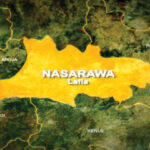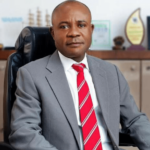
Placed in its wider national context, it might not be far off the mark to read this alluring but intriguing advocacy as an internal disagreement with the option of restructuring in favour of class reconciliation as a way of stabilizing the national democratic order. It is not always easy to read politicians correctly, especially as the country approaches 2019. In that case, only time will tell.
But it is a very moral or ethical statement coming from a politician and a business man. Perhaps, the moral world and the world of the politician are not that far apart when the subject matter is considered. The subject matter was ‘empowering communities for a greater nation’. And the guest speaker at a Rotary Club function in Abuja on August 27th, 2017 was Chief Steven Lawani, immediate past deputy-governor of Benue State. Speaking on the issue, Chief Lawani praised charity organisations for their long history of charity works in especially rural communities but argued for a paradigm shift. The shift, according to him, would entail not only “the consolidation of existing theory and practice of charity by way of micro interventions” but also the expansion of it to the case for what he called “a Charter of Inclusive Redistribution in Nigeria”.
Breaking down this charter, Lawani said “By that, I mean the creation of a system of redistribution which has something for everyone. That is, something for big business, something for all those who belong in the middle class and something for those who need nothing more than their daily survival needs”. In other words, Lawani canvasses what looks like a business manifesto for a fair society. That is, while business does not lose out, business and the prosperous section of the society is able to nurture a healthy and contented citizenry in a society which can guarantee the basic survival needs of the most underprivileged. The speaker is confident that “with the charter in question, we eliminate winners and losers and make everyone winners in relative terms”.
It is an interesting argument although throughout the speech, there was no mention of how this would come about. Brushing aside that question, Chief Lawani even said the issue is not about which development model will bring it about but an ethical decision. Said he, “We eliminate the winner – loser divide when conscious and desirous of a greater Nation, we decide as a national community to stipulate an irreducible minimum for the most underprivileged Nigerians in a Charter of Inclusive Redistribution as a priority. So, it is not a question of which business model but a question of a pragmatic model in relation to an exit strategy for a prosperous country trapped in angry rhetoric and hateful and hurting speeches”. He fires on by saying that at this point, it is no longer about any particular utopia but about “dealing with ethics of collective survival”.
As if anticipating being taken to task by those who are just happy doing their own thing through charity and philanthropy, Lawani says there is a simple basis for his argument. His basis is this: After so many years of micro intervention and yet the scale of demand or necessity for charity in the society is increasing rather than decreasing, then it should strike all of us that we need to rethink our practice. For him, it is by doing so through his proposed charter that the society would have secured everyone and laid the foundation for a truly greater Nigeria. Lawani’s concern seems to be about what he calls “guaranteeing a stake for all”.
Lastly, can charity organisations handle this task? Lawani would say yes on the basis that they have a long experience in empowerment and advocacy and a global tentacle to convince other stakeholders towards a consensus on the charter he proposed. Said he, “It may not fit into the ideological conviction of the Club or of its practices elsewhere in the world but it doesn’t need to. Nigeria is the right place to experiment with new ideas today”.
Placed against threatening and insensitive language dominating political discourse in Nigeria at this moment, this is something more engaging coming out of the political class. How far other members of his class would buy into it is a different question altogether. Certainly, Chief Lawani is not speaking a different language from the intendment of Chapter Two of the Nigerian Constitution under the heading “Fundamental Objectives and Directive Principles of State Policy”.
As posed in the opening lines of this piece, is it possible that the more enlightened section of the ruling elite is conscious of the imperative for some reform as a requirement for stability? Although it is understood that Chief Lawani has been a big but rather quiet name in philanthropy, the tone of his new argument looks rather different from a personal ideology of charity. It sounds more like a fractional thinking within the power elite about the way forward. Again, only time will tell.
Philips wrote this piece from Abuja.

 Join Daily Trust WhatsApp Community For Quick Access To News and Happenings Around You.
Join Daily Trust WhatsApp Community For Quick Access To News and Happenings Around You.

